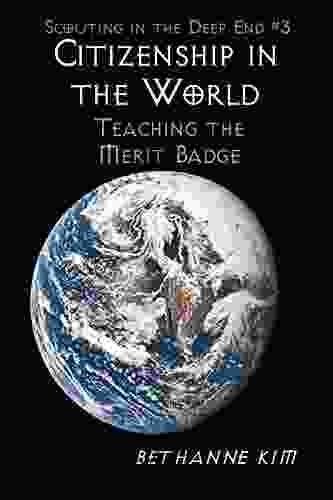The Government of Emergency: An Exploration of Extraordinary Measures in Times of Crisis

In the face of unforeseen events and extraordinary circumstances, governments around the world have resorted to the concept of the government of emergency. This exceptional measure empowers the executive branch with expanded authorities, allowing for the swift implementation of measures deemed necessary to safeguard public order, security, and well-being during times of crisis.
Legal Frameworks and Historical Precedents
The legal basis for the government of emergency varies from country to country, with some countries having specific constitutional provisions or emergency laws outlining the conditions and procedures for its declaration and implementation. In general, the government of emergency is invoked in response to imminent threats to national security, public order, or the functioning of essential services.
5 out of 5
| Language | : | English |
| Text-to-Speech | : | Enabled |
| Enhanced typesetting | : | Enabled |
| Word Wise | : | Enabled |
| File size | : | 21077 KB |
| Print length | : | 462 pages |
| Screen Reader | : | Supported |
Historically, the government of emergency has been employed in various contexts. During World War II, for instance, many countries implemented emergency measures to mobilize resources, control dissent, and maintain public order. The United States, for example, enacted the Japanese American Internment Act of 1942, which authorized the detention of Japanese Americans without due process.
Contemporary Applications
In recent times, the government of emergency has been invoked in response to a diverse range of crises, including natural disasters, health emergencies, and terrorist attacks. For instance, following the 2011 Tohoku earthquake and tsunami in Japan, the government declared a state of emergency, enabling the deployment of emergency personnel, the mobilization of resources, and the evacuation of affected areas.
Similarly, during the COVID-19 pandemic, numerous countries implemented emergency measures to contain the spread of the virus, limit public movement, and provide support to affected individuals and businesses. These measures included travel restrictions, business closures, and the temporary suspension of certain civil liberties.
Challenges and Opportunities
While the government of emergency can provide governments with the flexibility and authority to respond effectively to crises, it also poses significant challenges. One concern is the potential for abuse of power and the erosion of individual rights and freedoms. In some cases, emergency measures have been used to suppress dissent, silence opposition, and justify authoritarian rule.
Another challenge is the need to balance the short-term benefits of emergency measures with their long-term consequences. While they may be justified in the immediate aftermath of a crisis, extending them indefinitely can undermine the rule of law and democratic institutions. It is crucial to establish clear criteria for the declaration, duration, and termination of emergency measures.
However, the government of emergency can also present opportunities for governments to demonstrate leadership, mobilize resources, and foster public cooperation in times of crisis. By implementing well-defined and proportionate measures, governments can protect public health and safety, maintain essential services, and restore stability. The effective use of emergency measures can also strengthen public trust and confidence in the government's ability to respond to challenges.
Comparative Perspectives
The government of emergency has been employed in a variety of ways across different countries and legal systems. In France, for instance, the government has the authority to declare a "state of siege" or a "state of emergency," which grant the executive broad powers to restrict individual liberties and deploy military forces in the event of a serious threat to national security.
In the United Kingdom, the government can invoke the Civil Contingencies Act 2004 to respond to a wide range of emergencies, including natural disasters, terrorist attacks, and public health crises. The act provides for the establishment of emergency response plans, the coordination of resources, and the use of extraordinary powers, such as the deployment of troops and the imposition of curfews.
The government of emergency is a complex and controversial concept that raises fundamental questions about the balance between public safety and individual rights. While it can provide governments with the necessary tools to respond effectively to crises, it is essential to establish clear legal frameworks, ensure accountability, and safeguard democratic principles.
By carefully considering the challenges and opportunities presented by the government of emergency, policymakers and practitioners can develop effective strategies for managing crises while preserving the rule of law and protecting fundamental rights.
5 out of 5
| Language | : | English |
| Text-to-Speech | : | Enabled |
| Enhanced typesetting | : | Enabled |
| Word Wise | : | Enabled |
| File size | : | 21077 KB |
| Print length | : | 462 pages |
| Screen Reader | : | Supported |
Do you want to contribute by writing guest posts on this blog?
Please contact us and send us a resume of previous articles that you have written.
 Fiction
Fiction Non Fiction
Non Fiction Romance
Romance Mystery
Mystery Thriller
Thriller SciFi
SciFi Fantasy
Fantasy Horror
Horror Biography
Biography Selfhelp
Selfhelp Business
Business History
History Classics
Classics Poetry
Poetry Childrens
Childrens Young Adult
Young Adult Educational
Educational Cooking
Cooking Travel
Travel Lifestyle
Lifestyle Spirituality
Spirituality Health
Health Fitness
Fitness Technology
Technology Science
Science Arts
Arts Crafts
Crafts DIY
DIY Gardening
Gardening Petcare
Petcare Jessica Cunsolo
Jessica Cunsolo The 60 Minutes Summary
The 60 Minutes Summary Peter Hayes
Peter Hayes Don Mann
Don Mann Amira Mikhail
Amira Mikhail Tom Patri
Tom Patri Eric Zweig
Eric Zweig Thom Hartmann
Thom Hartmann Grant Dever
Grant Dever John Ferrell
John Ferrell Michael Winkelman
Michael Winkelman Mariano Anaya
Mariano Anaya Christopher E Larsen
Christopher E Larsen Joseph Mcmoneagle
Joseph Mcmoneagle Claudia J Carr
Claudia J Carr Vicki Hearne
Vicki Hearne Cynthia Gabriel
Cynthia Gabriel Vinod Kumar Khanna
Vinod Kumar Khanna Amber Zygutis
Amber Zygutis Sean Go
Sean Go Amara Charles
Amara Charles Alexandrea Weis
Alexandrea Weis Paul Wieland
Paul Wieland Jeanne Ryan
Jeanne Ryan Chris Carlsson
Chris Carlsson William Bohan
William Bohan H Bedford Jones
H Bedford Jones Ana And Jack Hicks
Ana And Jack Hicks Tom Taulli
Tom Taulli Christina Kamp
Christina Kamp Tim Hornbaker
Tim Hornbaker Chad Starkey
Chad Starkey Amber O Neal Johnston
Amber O Neal Johnston Jameson M Wetmore
Jameson M Wetmore Terry Wieland
Terry Wieland Helena P Blavasky
Helena P Blavasky Sonia Hartl
Sonia Hartl Byron Nelson
Byron Nelson Gary Wiener
Gary Wiener Fred Pyrczak
Fred Pyrczak Michael Cosgrove
Michael Cosgrove Michael R Poll
Michael R Poll P Aarne Vesilind
P Aarne Vesilind Kate Tietje
Kate Tietje Alan Margot
Alan Margot American Math Academy
American Math Academy Leslie Sansone
Leslie Sansone Kate Parham Kordsmeier
Kate Parham Kordsmeier Vivian Vande Velde
Vivian Vande Velde Joseph Wayne Smith
Joseph Wayne Smith Janet Engle
Janet Engle Liz Fosslien
Liz Fosslien Stanley I Greenspan
Stanley I Greenspan Heidi J Larson
Heidi J Larson Rosalind Wiseman
Rosalind Wiseman Amber Lee Sellers
Amber Lee Sellers Amit Saha
Amit Saha Cody Monk
Cody Monk Ruth Nestvold
Ruth Nestvold K F Breene
K F Breene John Maxwell Wood
John Maxwell Wood Christopher Harlan
Christopher Harlan Amelia Freer
Amelia Freer Stephenie Meyer
Stephenie Meyer Julie Schacht Sway
Julie Schacht Sway Donovan Hohn
Donovan Hohn Holly Herrick
Holly Herrick Sandra Bardwell
Sandra Bardwell Philip Gibson
Philip Gibson Candida Lawrence
Candida Lawrence Douglas Wilson
Douglas Wilson Dr Bob Rotella
Dr Bob Rotella Peter Worley
Peter Worley Zeshan Qureshi
Zeshan Qureshi Tanya Turner
Tanya Turner Nikala Smith
Nikala Smith Shaun Gallagher
Shaun Gallagher Victor J Stenger
Victor J Stenger Nicholeen Peck
Nicholeen Peck Sarah J Maas
Sarah J Maas Courtney Defeo
Courtney Defeo Tyler Simmons
Tyler Simmons Kathy A Zahler
Kathy A Zahler Rick Deutsch
Rick Deutsch Jenny Landreth
Jenny Landreth Andy Hunt
Andy Hunt Pinky Mckay
Pinky Mckay James Mullaney
James Mullaney Gail Maccoll
Gail Maccoll Trent Shelton
Trent Shelton Sarah Woodbury
Sarah Woodbury Laekan Zea Kemp
Laekan Zea Kemp Mark Turley
Mark Turley Donna Williams
Donna Williams Dom Amore
Dom Amore Eric T Knight
Eric T Knight Umer W
Umer W Gina Chen
Gina Chen Temple Grandin
Temple Grandin Naomi Oreskes
Naomi Oreskes Bridget Ericsson
Bridget Ericsson Stanley J Farlow
Stanley J Farlow Sian Warriner
Sian Warriner June Cl Tan
June Cl Tan Jeffrey Steadman
Jeffrey Steadman Torey L Hayden
Torey L Hayden Ned Vizzini
Ned Vizzini Tavi Gevinson
Tavi Gevinson Desi Northup
Desi Northup Therese A Rando
Therese A Rando C L Simchick
C L Simchick Gia Giasullo
Gia Giasullo Amy B Middleman
Amy B Middleman Antonio R Damasio
Antonio R Damasio Randall E Schumacker
Randall E Schumacker Garrett M Fitzmaurice
Garrett M Fitzmaurice Jeff Martone
Jeff Martone Dolores Kong
Dolores Kong Kate Fox
Kate Fox Krystal Sutherland
Krystal Sutherland Jenni Hicks
Jenni Hicks Wade Rouse
Wade Rouse Johan Norberg
Johan Norberg Matthew Lombardi
Matthew Lombardi Julie Barlow
Julie Barlow Tim Marshall
Tim Marshall Katherine Kurtz
Katherine Kurtz Kathleen M Stacy
Kathleen M Stacy Erik Qualman
Erik Qualman David Salsburg
David Salsburg Elise Christie
Elise Christie Sterling Test Prep
Sterling Test Prep Amie Lands
Amie Lands Tamora Pierce
Tamora Pierce Sharon K Zumbrunn
Sharon K Zumbrunn Tabitha Suzuma
Tabitha Suzuma Amber Foster
Amber Foster Sandra Luna Mccune
Sandra Luna Mccune Richard Cohen
Richard Cohen John L Field
John L Field Paul Schwartz
Paul Schwartz Rick Stanton
Rick Stanton Arlene Blum
Arlene Blum Charles Thompson
Charles Thompson Norman Doidge
Norman Doidge Nikhil Bhardwaj
Nikhil Bhardwaj Joan Freeman
Joan Freeman Robb Walsh
Robb Walsh Derek Thompson
Derek Thompson Trevor Day
Trevor Day Jacob Bronowski
Jacob Bronowski Dan Abnett
Dan Abnett Dr Elizabeth Cherevaty Nd Rac
Dr Elizabeth Cherevaty Nd Rac Frederick Lenz
Frederick Lenz Andy Singleton
Andy Singleton Amir Alexander
Amir Alexander Reinhold Messner
Reinhold Messner Marisa Anne Bass
Marisa Anne Bass Dana Obleman
Dana Obleman Eric Tyndall
Eric Tyndall David Elkington
David Elkington William Rosen
William Rosen Kumo Kagyu
Kumo Kagyu Kyle Hunt
Kyle Hunt Nisha Garg
Nisha Garg Jack Ewing
Jack Ewing Cole Hersowitz
Cole Hersowitz Benjamin Jelen
Benjamin Jelen Jocelyn Goodwin
Jocelyn Goodwin Cordelia K Castel
Cordelia K Castel Shere Hite
Shere Hite Andrey Ryanskiy
Andrey Ryanskiy Stephen Goodwin
Stephen Goodwin Doug Peterson
Doug Peterson Jeff Gaudette
Jeff Gaudette Melody Schreiber
Melody Schreiber Robert W D Ball
Robert W D Ball Vince Kotchian
Vince Kotchian Jan Marie Mueller
Jan Marie Mueller Tracy Lorraine
Tracy Lorraine Ignatius Donnelly
Ignatius Donnelly Mark Taylor
Mark Taylor Jeremy J Baumberg
Jeremy J Baumberg Elizabeth S Gilbert
Elizabeth S Gilbert Jonathan Law
Jonathan Law A Sorority Of Mothers
A Sorority Of Mothers Ananda Lowe
Ananda Lowe Valerie Bass
Valerie Bass Erika Napoletano
Erika Napoletano Alan I Marcus
Alan I Marcus Jack Weatherford
Jack Weatherford Topher Donahue
Topher Donahue Kasie West
Kasie West Amante P Marinas
Amante P Marinas Sheri Van Dijk
Sheri Van Dijk Lars Andersen
Lars Andersen Muhammad Vandestra
Muhammad Vandestra Glenn Stout
Glenn Stout Bethanne Kim
Bethanne Kim James P Kelly
James P Kelly Marco Ferrero
Marco Ferrero Philippa Langley
Philippa Langley Michael Ondaatje
Michael Ondaatje Maria Youtman
Maria Youtman Catherine Ryan Gregory
Catherine Ryan Gregory John Lukacs
John Lukacs Martin Williams
Martin Williams L Frank Baum
L Frank Baum Amelia Parker
Amelia Parker Cathy Williams
Cathy Williams Howard J Meditz
Howard J Meditz David Guymer
David Guymer Amber Smith
Amber Smith Guillaume Haeringer
Guillaume Haeringer Andy Couturier
Andy Couturier J Stephen Jones
J Stephen Jones Traci Gormley
Traci Gormley Roman Gelperin
Roman Gelperin Gerald Corey
Gerald Corey Chad Ford
Chad Ford William G Dever
William G Dever American Psychological Association
American Psychological Association Sarah Sumbal
Sarah Sumbal David Yoon
David Yoon Amy Perry
Amy Perry Jan E Stets
Jan E Stets James W Williams
James W Williams Peter Larson
Peter Larson Amie Kaufman
Amie Kaufman Henry A Zumbrun 2
Henry A Zumbrun 2 Swede Burns
Swede Burns Martin Pollizotto
Martin Pollizotto Michael Reichert
Michael Reichert Laurie A Watkins
Laurie A Watkins Catherine Dees
Catherine Dees Adam Cort
Adam Cort Ned Seaton
Ned Seaton Sean Gibson
Sean Gibson Paul Kaplowitz
Paul Kaplowitz Theresa Y Wee M D
Theresa Y Wee M D Richard Wagamese
Richard Wagamese Amber Lia
Amber Lia Jack Freeman
Jack Freeman David Grinspoon
David Grinspoon Candy Verney
Candy Verney Jack Tupp
Jack Tupp Amy Camp
Amy Camp Ellie Wood
Ellie Wood Jonathan Bartlett
Jonathan Bartlett Hadley Wickham
Hadley Wickham Jake Maddox
Jake Maddox Sue Monk Kidd
Sue Monk Kidd Nina Freudenberger
Nina Freudenberger Jon Bonnell
Jon Bonnell Deborah Lipsky
Deborah Lipsky Denise Ni
Denise Ni Don Orwell
Don Orwell Isabella Krystynek
Isabella Krystynek Nicholas A Christakis
Nicholas A Christakis Ruth M Tappen
Ruth M Tappen Camille Glenn
Camille Glenn Deborah J Rumsey
Deborah J Rumsey Stephen M Barr
Stephen M Barr Brittany Clair
Brittany Clair Ruta Nonacs
Ruta Nonacs C W Lockhart
C W Lockhart Mark W T Harvey
Mark W T Harvey Ronda Rousey
Ronda Rousey Erica T Lehrer
Erica T Lehrer Paul Dickson
Paul Dickson Helen E Fisher
Helen E Fisher Julie Mosier
Julie Mosier Emma Mae Jenkins
Emma Mae Jenkins Susanna Heli
Susanna Heli Kristine Kathryn Rusch
Kristine Kathryn Rusch Cookie O Gorman
Cookie O Gorman Anne Chambers
Anne Chambers Dr Scott A Johnson
Dr Scott A Johnson Deborah Vinall Psyd Lmft
Deborah Vinall Psyd Lmft Don Stradley
Don Stradley Derrick Jensen
Derrick Jensen Nathan Belofsky
Nathan Belofsky Dave Hanson
Dave Hanson Neville Goddard
Neville Goddard Tom Colicchio
Tom Colicchio Marit Weisenberg
Marit Weisenberg Pico Iyer
Pico Iyer Lisa Zimmer Hatch
Lisa Zimmer Hatch Rob Antoun
Rob Antoun Anthony Haynes
Anthony Haynes Amy Mccready
Amy Mccready Lisa Maloney
Lisa Maloney Joe E Harvey
Joe E Harvey John Mcpherson
John Mcpherson William Glasser M D
William Glasser M D Karen Deerwester
Karen Deerwester Art Star
Art Star Randy Schultz
Randy Schultz Jd Mader
Jd Mader Jason Borte
Jason Borte Sarah Dessen
Sarah Dessen Iain Pardoe
Iain Pardoe Kezia Endsley
Kezia Endsley Joe Dan Lowry
Joe Dan Lowry Dmv Test Bank
Dmv Test Bank Eugenia Viti
Eugenia Viti Amy Blakeslee
Amy Blakeslee Silvia Botros
Silvia Botros Mark Stallard
Mark Stallard David Burch
David Burch Theodore Sider
Theodore Sider Robyn Davidson
Robyn Davidson Diane Greer
Diane Greer Rose Mannering
Rose Mannering Mac Fortner
Mac Fortner Stephen J Collier
Stephen J Collier Marina Robb
Marina Robb John A Buehrens
John A Buehrens Kevin Stiegelmaier
Kevin Stiegelmaier Carlo Buzzichelli
Carlo Buzzichelli Lizabeth Hardman
Lizabeth Hardman Jerry D Moore
Jerry D Moore Joseph Klaits
Joseph Klaits Md Mahady Hasan
Md Mahady Hasan Joe Nickell
Joe Nickell Autumn Jordon
Autumn Jordon Eugene C Toy
Eugene C Toy Jim Santos
Jim Santos Joellen Patterson
Joellen Patterson Amy Brown
Amy Brown Craig Larman
Craig Larman Clancy Cavnar
Clancy Cavnar Mitt Romney
Mitt Romney Anthony Horowitz
Anthony Horowitz Julie Caplin
Julie Caplin Danny Dreyer
Danny Dreyer Rachel Gurevich
Rachel Gurevich Brendan Leonard
Brendan Leonard Don Bowers
Don Bowers Jack Falla
Jack Falla Oscar Baechler
Oscar Baechler Christine Fanthome
Christine Fanthome Eric E Bowne
Eric E Bowne Jack Nisbet
Jack Nisbet Joe Dante
Joe Dante Jayson Gaddis
Jayson Gaddis Louise Bates Ames
Louise Bates AmesK D
 Bruce Dowbiggin
Bruce Dowbiggin Steven C Hayes
Steven C Hayes Mark Worden
Mark Worden Harley Reid
Harley Reid Alex Stone
Alex Stone Laini Taylor
Laini Taylor George Bernard Shaw
George Bernard Shaw Patricia L Papernow
Patricia L Papernow Brian Kateman
Brian Kateman Chris Irons
Chris Irons Spike Dykes
Spike Dykes Robert A Weinberg
Robert A Weinberg John Jacobs
John Jacobs Bill Carter
Bill Carter Sarah Morgan Haydock
Sarah Morgan Haydock Buck Tilton
Buck Tilton Tom Deck
Tom Deck Saleh Alkhalifa
Saleh Alkhalifa Amy Bizzarri
Amy Bizzarri Lady Antiva
Lady Antiva Kresley Cole
Kresley Cole Kieron Gillen
Kieron Gillen Steve Greenberg
Steve Greenberg Shalabh Aggarwal
Shalabh Aggarwal Clotaire Rapaille
Clotaire Rapaille Md Rezowan Ahmed
Md Rezowan Ahmed Wendy Margolis
Wendy Margolis Ryan Gray
Ryan Gray Ken Chaddock
Ken Chaddock Heather Macfadyen
Heather Macfadyen Amy Baldwin
Amy Baldwin Jennifer S Kelly
Jennifer S Kelly Timothy Malcolm
Timothy Malcolm Jean Rose
Jean Rose Joel Cotton
Joel Cotton Pav Bryan
Pav Bryan Test Masters
Test Masters Jean Van T Hul
Jean Van T Hul Suzanne Stabile
Suzanne Stabile Matthew L Martin
Matthew L Martin Tijan
Tijan Thomas J Whalen
Thomas J Whalen Joseph Howse
Joseph Howse Josiah Hesse
Josiah Hesse Tahlia Kirk
Tahlia Kirk Christopher Cousteau
Christopher Cousteau Charles J Alsheimer
Charles J Alsheimer Warren B Powell
Warren B Powell Django Paris
Django Paris Stephen Barr
Stephen Barr Joseph P Weir
Joseph P Weir Angela Moore
Angela Moore Josh Taylor
Josh Taylor Dan Schlossberg
Dan Schlossberg Sheena Johnstone
Sheena Johnstone Laura Slinn
Laura Slinn Brian Pace
Brian Pace Theresa I Soto
Theresa I Soto Redmond O Hanlon
Redmond O Hanlon Shannon O Bourne
Shannon O Bourne Chloe Gong
Chloe Gong Charles Hall
Charles Hall Amy Adele Hasinoff
Amy Adele Hasinoff Amiee Mueller
Amiee Mueller American Baseball Coaches Association
American Baseball Coaches Association Elizabeth Lim
Elizabeth Lim Kris Leonard
Kris Leonard Jessica Hatcher Moore
Jessica Hatcher Moore Michaela Riva Gaaserud
Michaela Riva Gaaserud Amy Bleuel
Amy Bleuel Shanna Cunning
Shanna Cunning Rob Fisher
Rob Fisher Marshall Goldsmith
Marshall Goldsmith Joseph Conrad
Joseph Conrad Robert Melillo
Robert Melillo Gal Dem
Gal Dem J Marin Younker
J Marin Younker Patrick O Sullivan
Patrick O Sullivan Jennifer Margulis
Jennifer Margulis Rich Rousseau
Rich Rousseau Brian Klaas
Brian Klaas Michael Abayomi
Michael Abayomi Nick Kolenda
Nick Kolenda Michael Parker Pearson
Michael Parker Pearson Cheri Rae
Cheri Rae Jonathon Miller Weisberger
Jonathon Miller Weisberger Jason Thompson
Jason Thompson J L Weil
J L Weil Ray Mancini
Ray Mancini Pamela Lynn
Pamela Lynn Ashley Scott
Ashley Scott Rodney M Howard Browne
Rodney M Howard Browne John Bingham
John Bingham Stephen Walker
Stephen Walker Rosanna Davison
Rosanna Davison Michelle Newhart
Michelle Newhart Frank Nappi
Frank Nappi Sandra T Barnes
Sandra T Barnes Dima Zales
Dima Zales Larry K Brendtro
Larry K Brendtro Amby Cooper
Amby Cooper Paul Kockelman
Paul Kockelman Kathleen Glasgow
Kathleen Glasgow Steven Charleston
Steven Charleston David Ranney
David Ranney Kathy Spratt
Kathy Spratt Wolf Moon
Wolf Moon Paul Graham
Paul Graham E T Bryant
E T Bryant Alex Polyakov
Alex Polyakov Jean Christie Ashmore
Jean Christie Ashmore James E Packer
James E Packer Amrita Pande
Amrita Pande Victoria Richards
Victoria Richards Amelia Edith Huddleston Barr
Amelia Edith Huddleston Barr Mike Adamick
Mike Adamick Erin Chack
Erin Chack Kenneth P Stephens
Kenneth P Stephens Anna B Doe
Anna B Doe Victoria Wood
Victoria Wood Meikang Qiu
Meikang Qiu Edward J Denecke
Edward J Denecke Devin Olsen
Devin Olsen Malba Tahan
Malba Tahan Paul Oliver
Paul Oliver Susan White
Susan White Josephine Atluri
Josephine Atluri William Stillman
William Stillman Toni Tone
Toni Tone Summer Michaud Skog
Summer Michaud Skog K M Shea
K M Shea
Light bulbAdvertise smarter! Our strategic ad space ensures maximum exposure. Reserve your spot today!

 Edgar Allan PoeThe American Medical Association's Guide for Becoming a Teen: A Comprehensive...
Edgar Allan PoeThe American Medical Association's Guide for Becoming a Teen: A Comprehensive...
 Cody Russell250 Massachusetts CDL Practice Test Questions: Prepare for Success on Exam...
Cody Russell250 Massachusetts CDL Practice Test Questions: Prepare for Success on Exam...
 Alexandre DumasMinute Mindfulness For Pregnancy: A Guide to Cultivating Calm and Well-being...
Alexandre DumasMinute Mindfulness For Pregnancy: A Guide to Cultivating Calm and Well-being...
 Thomas PynchonRules for the Modern Opposites Attract Sports Romance: A Comprehensive Guide
Thomas PynchonRules for the Modern Opposites Attract Sports Romance: A Comprehensive Guide Victor HugoFollow ·5.1k
Victor HugoFollow ·5.1k Cason CoxFollow ·3k
Cason CoxFollow ·3k Billy FosterFollow ·16.5k
Billy FosterFollow ·16.5k Dennis HayesFollow ·16.3k
Dennis HayesFollow ·16.3k Jace MitchellFollow ·9.9k
Jace MitchellFollow ·9.9k Preston SimmonsFollow ·15.1k
Preston SimmonsFollow ·15.1k Hugo CoxFollow ·15.3k
Hugo CoxFollow ·15.3k Zachary CoxFollow ·10.3k
Zachary CoxFollow ·10.3k

 Ira Cox
Ira CoxUnveiling the Hidden Gem: Moon, Virginia - A Washington...
Nestled within the picturesque...

 Jorge Luis Borges
Jorge Luis BorgesThe Ultimate Survivalist's Medical Guide: A Comprehensive...
In the realm of...

 Henry Green
Henry GreenDavid Douglas: Exploring the Natural History of the...
David Douglas was a...

 Eric Hayes
Eric HayesUnderstanding Citizenship in a Globalized World: A...
Citizenship is a complex and multifaceted...

 Will Ward
Will WardUnveiling Research Real Talk: Navigating the Labyrinth of...
Research, the...
5 out of 5
| Language | : | English |
| Text-to-Speech | : | Enabled |
| Enhanced typesetting | : | Enabled |
| Word Wise | : | Enabled |
| File size | : | 21077 KB |
| Print length | : | 462 pages |
| Screen Reader | : | Supported |






